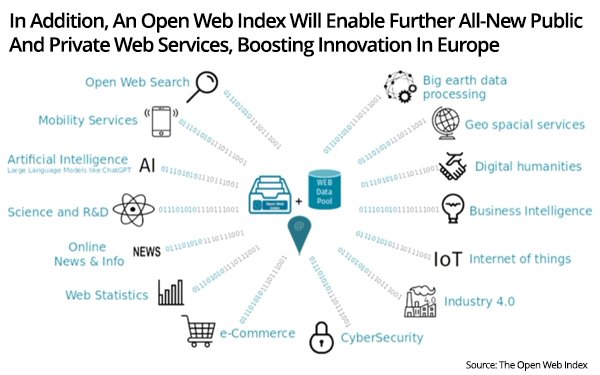
The public Open Web Index, a pan-European project
set to launch in early trials next month, hopes to reduce Europe's reliance on Google and Bing and create the free flow of information.
If implemented in the U.S., the project could bring
more competition to smaller companies without the need to break up Google.
Google and Bing, the two largest U.S. companies acting as gatekeepers, have increasingly optimized search for
generative AI (GAI) and advertising, according to the consortium. The goal is to move Europe away from dominant, ad-driven search engines to support local businesses and technologies.
I can see this benefiting U.S. businesses, and becoming an option for a remedy in Google's monopoly trial. A search remedies trial is set to begin in September that focuses on how Google should
address its search monopoly, following a ruling by Judge Amit Mehta.
advertisement
advertisement
Mozilla, which has a search agreement with Google, has long supported competition in tech markets. Last week the company published a blog post asserting that "search competition must
improve, but this can be done without harming browser competition."Maybe it's time to look toward Europe and its solutions for fair competition.
The objective
is to diminish Europe's dependence on Google and Bing by providing funding and expertise to develop the infrastructure needed for a publicly accessible web index. This initiative will enable smaller
search engines to access information that was previously exclusive to companies collaborating with larger search engines.
Crawling and saving information at different data centers is
one challenge because of legal and societal requirements across countries, while the other is hosting the index that requires a lot of storage, Megi Sharikadze, research manager at Leibniz Super
Computing Center (LRZ), said in a video. "The index must be updated daily," she said. "The index must also operate 24/7."
Sharikadze believes companies will have an opportunity to
create different types of businesses on top of this data.
Fourteen partners from seven European countries make up the consortium. Each is representative of a variety of businesses and
technical firms from across Europe, including data centers, research institutions, universities, industry, and non-governmental organizations. The group worked on the project for more than two
years.
The list of partners as of May 2025 include, but is not limited to, University of Passau in Germany, Radboud University in Netherlands, Graz University of
Technology in Austria, German Aerospace Center (DLR), and CERN in Switzerland.
Open Web Index functions as a digital library where search engines can retrieve files and web pages. Major
search providers rely on proprietary indexes, while smaller engines like DuckDuckGo are often dependent on indexing data from larger engines like Google and Bing, which have gained control over the
information across the web.
Adhering to European privacy standards and regulations also has been a consideration. The consortium hopes to onboard a range of projects from diverse domains
to get early feedback in the initial pilot phase.